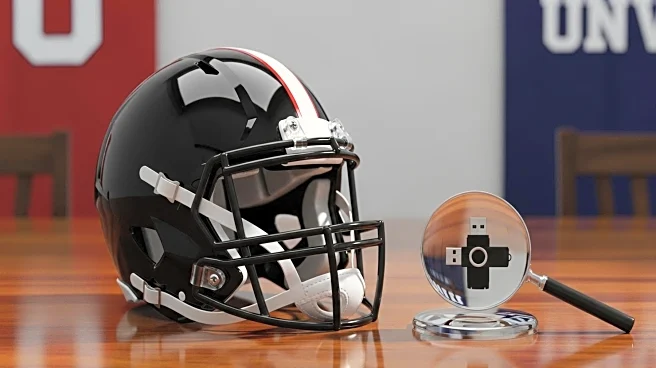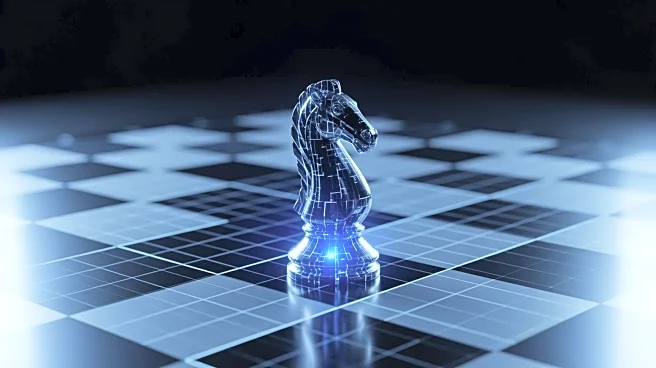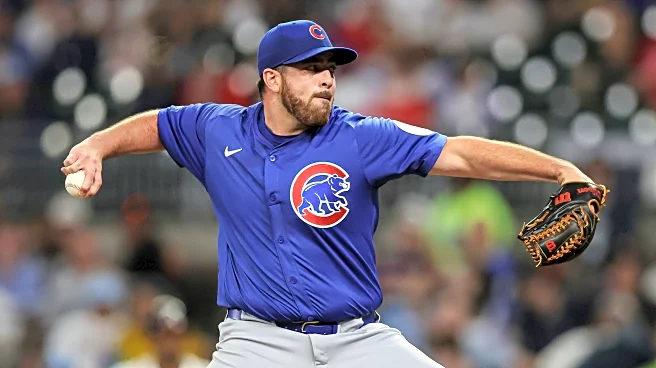What's Happening?
A former University of Michigan football player is at the center of an NCAA investigation concerning unauthorized material leaks and false statements. The NCAA's 79-page report on a sign-stealing controversy revealed that the player, who is also a student-athlete, lied about claims involving former linebackers coach Chris Partridge. Partridge was fired in November 2023, but was not penalized by the NCAA. The investigation further uncovered that the student-athlete recorded a phone call with Connor Stalions, a key figure in the investigation, without consent. This player allegedly took videos from a former Michigan staffer's personal computer and handed them to a private investigation firm, which then provided them to the NCAA. The NCAA imposed an eight-year show-cause penalty on Stalions. The University of Michigan plans to appeal the NCAA's decision, citing potential illegal evidence acquisition.
Why It's Important?
The implications of this investigation are significant for the University of Michigan and the NCAA. The controversy highlights issues of integrity and compliance within collegiate sports, potentially affecting the university's reputation and future recruitment. The case also raises questions about the NCAA's evidence-gathering practices and the legal ramifications of using potentially illegally obtained materials. If Michigan's appeal is successful, it could set a precedent for how evidence is handled in NCAA investigations, impacting future cases and the organization's credibility. The outcome may influence how universities manage internal investigations and compliance with NCAA regulations.
What's Next?
The University of Michigan is preparing to appeal the NCAA's decision in state court, where the legality of the evidence acquisition will be scrutinized. Attorney Odey K. Meroueh suggests that the appeal could lead to a different outcome, as state courts adhere to due process rules that may deem illegally obtained evidence inadmissible. This could potentially result in the dismissal of the case against Michigan. The appeal process will likely involve detailed legal arguments about evidence admissibility, which could have broader implications for NCAA investigations and university compliance practices.
Beyond the Headlines
The case underscores the ethical and legal challenges in collegiate sports investigations. It raises concerns about privacy and consent, particularly regarding the unauthorized recording of phone calls and accessing personal computer files. The situation also highlights the tension between NCAA administrative procedures and state legal standards, which could lead to changes in how investigations are conducted and evidence is handled. This case may prompt universities to reassess their internal policies and training regarding compliance and ethical conduct.











